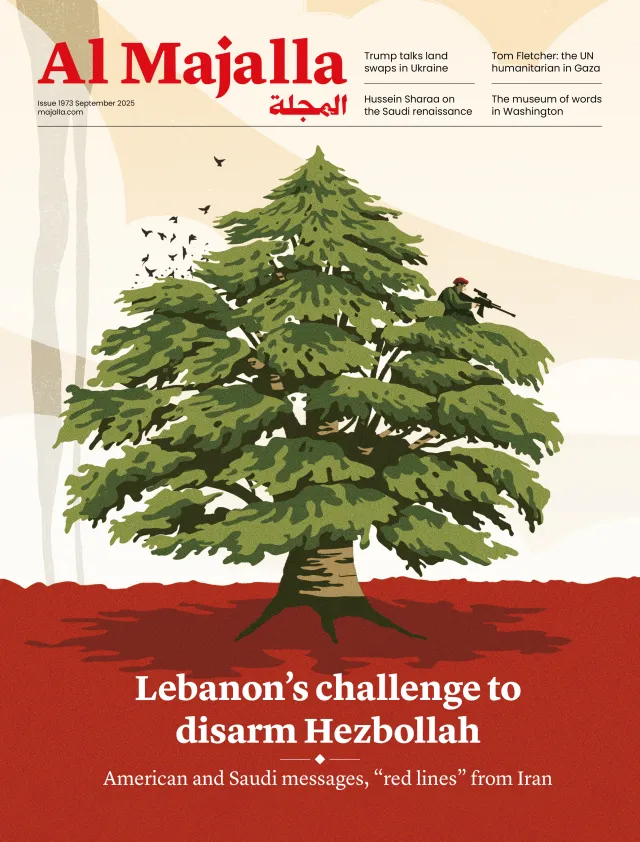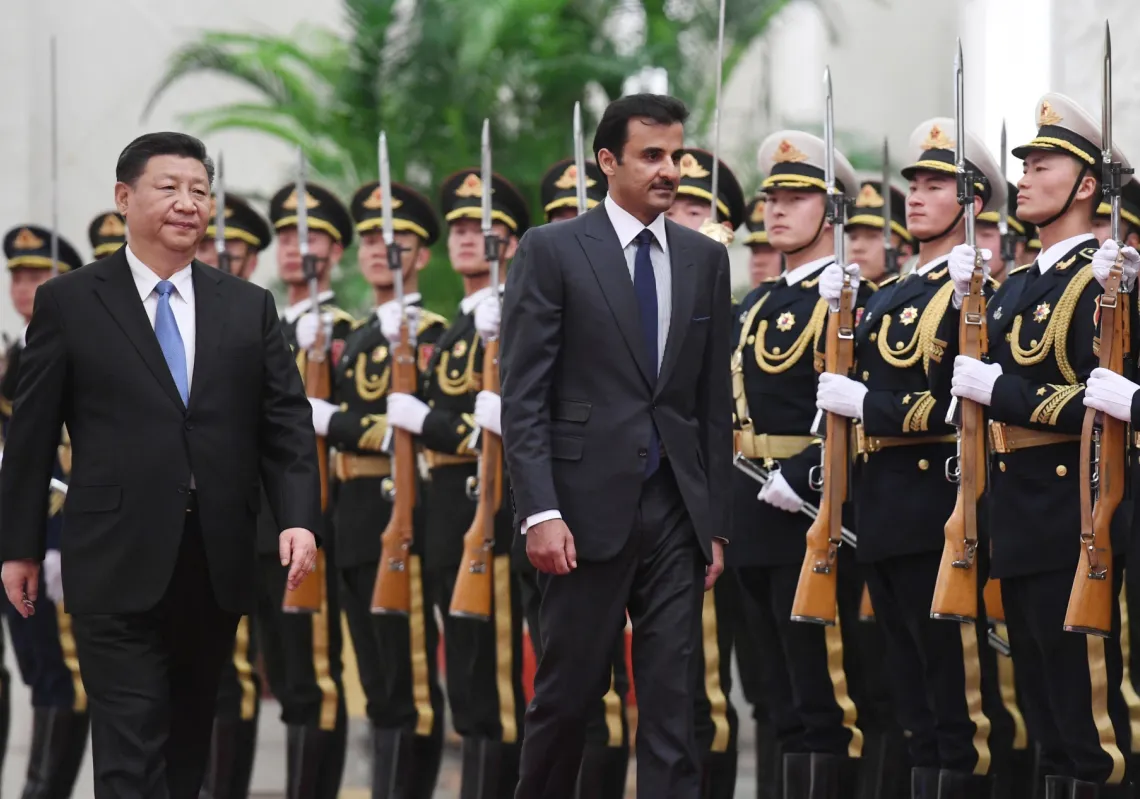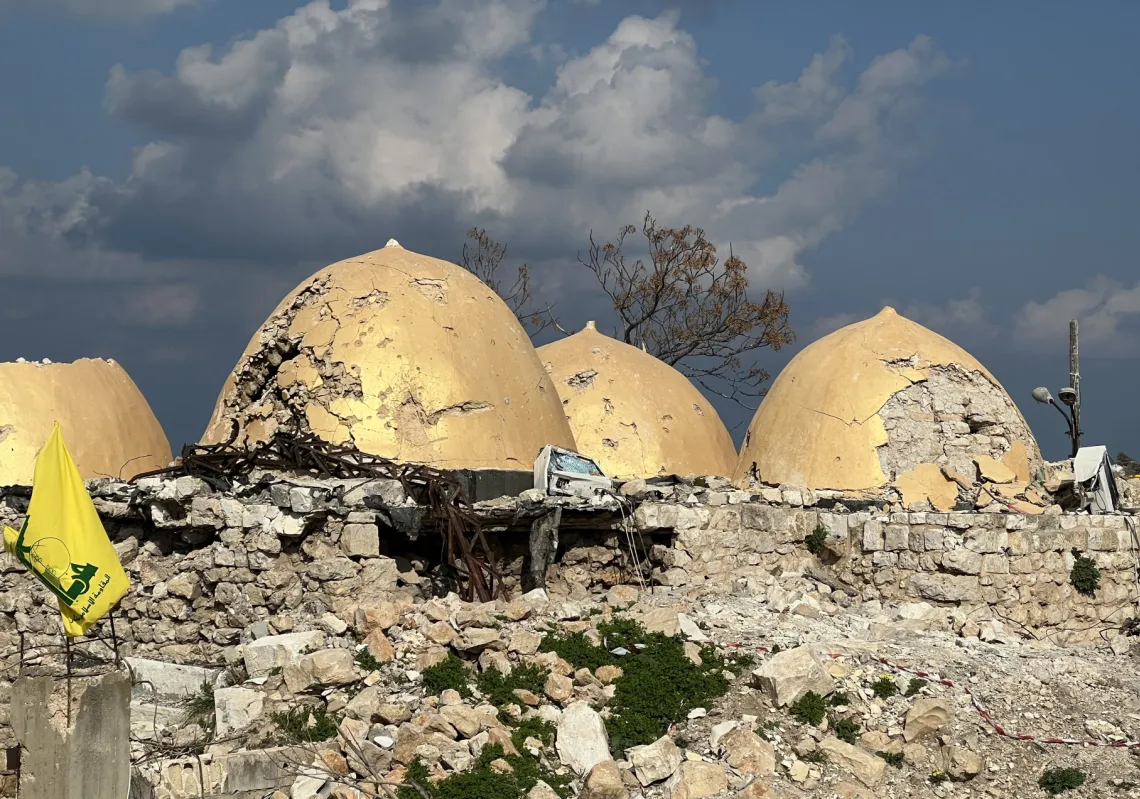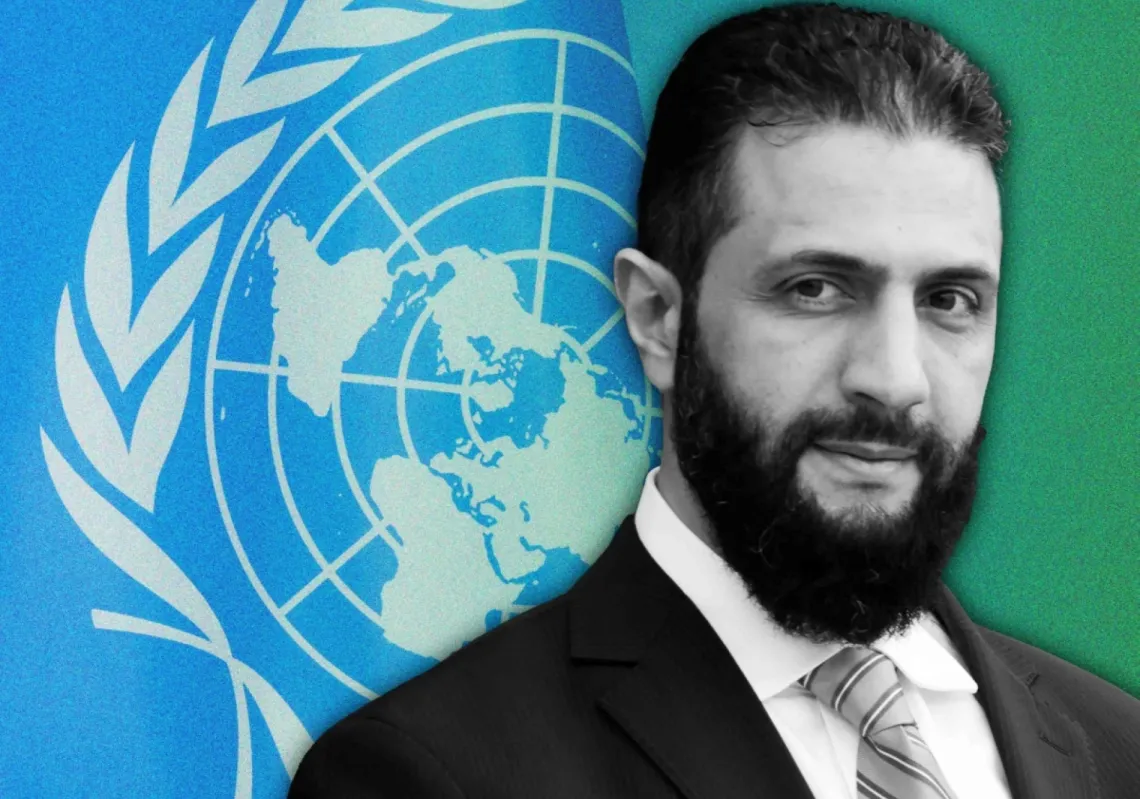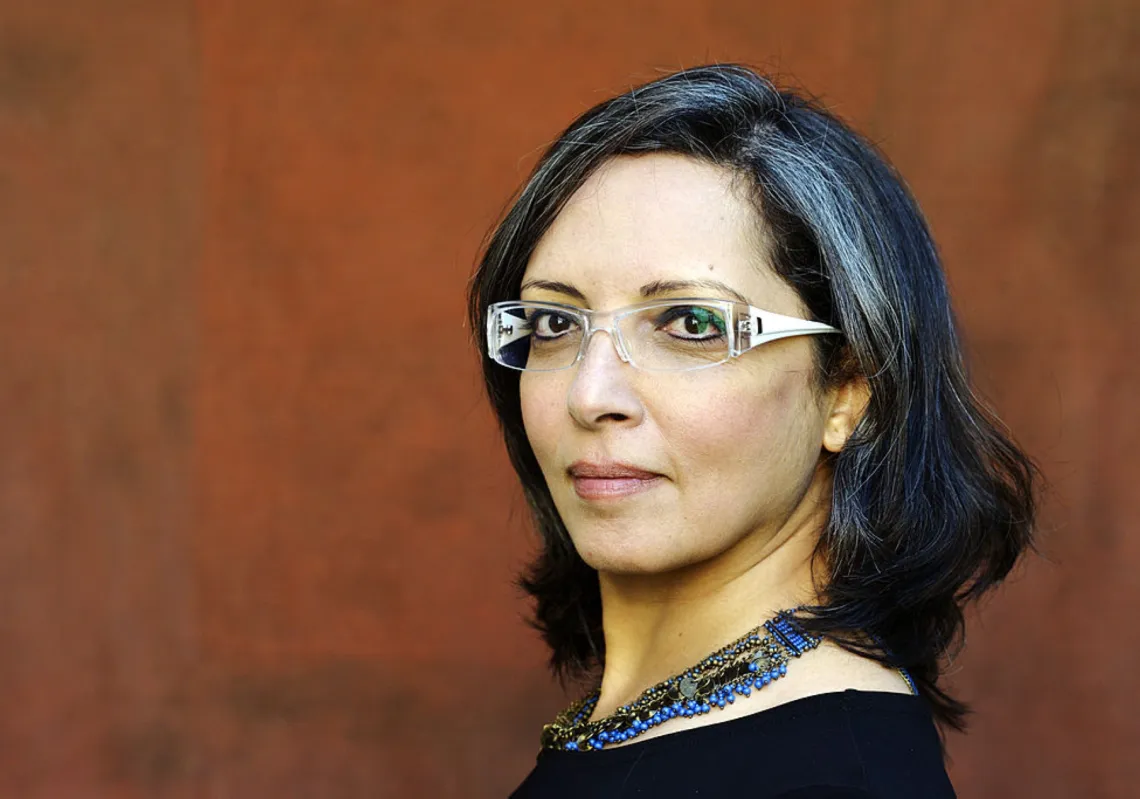Almost a decade after the September 11 attacks, America is still at war with politically-based religious groups and movements. Not only was US foreign policy indelibly shaped, shaken and transformed by the 9/11 earthquake but also, and more alarming, September 11 transformed the attitudes of the US public towards Islam from one of suspicious ambivalence to one of unnecessary fear and rejection.
Contrary to the received wisdom, American foreign policy and political Islam were not always worst enemies. A long history of cooperation, accommodation, common interests, and at times, confrontation has characterized America’s relations with Islamic organizations. However, September 11 marked a rupture in America’s relations with political Islam, the end of a nuanced and complex engagement for more than half a century.
Fierce debates and concerns about political Islam have been a permanent feature of American foreign policymaking for the past 60 years and different presidential administrations have approached political Islam in different ways.
A common thread of America’s engagement with political Islam is that real politick and inter-state interests have driven the relationship more so than cultural, religious and ideological factors. For the American public, although the religious and intellectual challenge of Islam continues to seize the imagination of many people in the US, it is the security and strategic implications of the mass politics of Islam that resonates in the minds of many Americans.
A history of engagement before 9/11
On the whole, between 1955 and 1970, US policy in the Arab world was framed in opposition to secular Arab nationalism led by President Gamal Abdel-Nasser of Egypt. In US eyes, revolutionary nationalism, not political Islam, represented a security threat to the pro-Western, conservative monarchies. Symbolic representations, such as “extremist” and “satellite,” were applied to radical nationalist elements throughout the Middle East.
Ironically, in the 1950s and 1960s, the United States hoped to construct an alliance of Islamic states with sufficient prestige to counterbalance “godless communism” and the secular nationalist forces as represented by Nasser. In the mid-1960s, one of the reasons for the deterioration of US-Egyptian relations was Nasser’s belief that President Lyndon Johnson had encouraged King Faisal ibn ‘Abd Al-Aziz of Saudi Arabia to sponsor a holly Islamic alliance to isolate Egypt in the Arab world. In the struggle between Islam and populist nationalism, the United States sided with the former. American policy was driven by Cold War considerations and strategic calculations, not by history, culture or any intrinsic fear or hatred of Islam.
The US perception of the Middle East situation and the nature of the threat, however, underwent a radical shift in the 1970s, largely because of the explosion of Islamic politics onto the scene. Regional events—the 1973 Arab-Israeli war, the subsequent Arab oil embargo, and the 1978-79 Islamic Iranian revolution and the ensuing hostage crisis—shocked many American officials into viewing Islam as a threat to Western interests.
Of all the regional developments of the 1970s, the Iranian revolution and the hostage crisis had the most formative effect on the US foreign-policy establishment and the public’s views of Islam. As one US official noted in 1995, “The Iranian experience extremely conditioned US thinking about the violent, anti-American nature of fundamentalist Islam.” It was under the impact of the Iranian revolution, then, that Islamism replaced secular nationalism as a security threat to US interests, and fear of a clash between Islam and the West crystallized in the minds of Americans.
Events of the following years only sharpened US fears of the power of resurgent Islam. In particular, the 1981 assassination of President Sadat of Egypt, and the bloody attacks against US personnel and installations in Lebanon, Kuwait and elsewhere, heightened US officials’ concerns over the export of “Iranian fundamentalism.”
The Islamic revolution in Tehran colored US attitudes towards political Islam. The politics of Islam were confused with the politics of Iran, with many Americans unable to imagine relations with an Islamist government in which the United States was not cast as the Great Satan. “US perceptions of the Iranian experience,” conceded one State Department official, “were projected to our experience of the Arab Middle East.”
Terrorism and political Islam in the psyche of the American people
Since the 1990s, terrorism has emerged as one of the most important political issues in the United States. A series of explosions shattered America’s peace of mind, most notably the 1993 World Trade Center bombings, and deepened American’s fears about the security threats associated with Islamists.
The explosion in New York City had broader implications for US foreign policy. As a senior State Department official remarked, the World Trade Center bombing represented a setback to the Clinton administration’s efforts to define a positive, accomodationist policy toward Islam. Some Middle Eastern regimes, particularly Israel and Egypt, sought to capitalize on the bombing by pressing the United States to support them further in the struggle against local Islamist opposition groups. In the United States, those subscribing to variations of the clash-of-civilizations hypothesis used it to advocate a tough policy toward Islamists.
Therefore, the World Trade Center blast provided confrontationalists in the United States and overseas with a golden opportunity to lobby the Clinton administration to formulate a forceful policy towards Islamists. In moments of crisis, confrontationalists gain the upper hand and dominate the airways and media. It is at such a juncture that American’s attitudes towards Arabs/Muslims harden.
At a Senate hearing in April 1993, Laurence Pope, the Acting Coordinator for Counter-Terrorism, noted, “Twenty years ago in the Arab world, secular nationalism was the preferred ideology. And so it was the ideology that terrorists adapted as a cover for their actions. Increasingly, it’s Islamic ideology, extremist Islamic ideology, which provides the cover.”
September 11: political Islam—public enemy number 1
Although American foreign policy used to be nuanced and dynamic towards political Islam, 9/11 represented a rupture, a dramatic shift in how US policy makers and opinion makers view the many faces of political Islam.
Instead of adopting a more constructive approach—one that drew distinctions among the many faces of Islamic groups and movements, security-based US “experts” took the easier, reductionist approach of lumping all Islamists together. They looked backward and pigeonholed mainstream-moderate Islamists through the prism of Al-Qaeda.
These US terrorism ideologues, wittingly or not, endorsed the official agenda by portraying Islamism as jihadism, a borderless and transnational violent fringe and also as a mortal threat to the West, an aggressive and totalitarian ideology dedicated to random destruction and global subjugation. Still other “experts” of the neoconservative type advocated an all-out war against any manifestation of political Islam.
Building on this consensus of uninformed pundits and social engineers, President Bush ratcheted up the rhetoric by grouping all mainstream and militant Islamists together under the word “Islamofascists.” He called on Americans to be prepared for a global war on terror, the “inescapable calling of our generation.” This United States, Bush proclaimed, was thrust into a struggle between “good” and “evil.” Bush revived memories of the Truman Doctrine, proclaimed 55 years earlier, which envisioned two clashing global systems, one founded on freedom and the other on hatred and persecution.
This war, Bush said, would eradicate the threat of Islamic-radical terrorism (again, a loose and incoherent term) and target rogue states that sponsored terrorism or offered lodging to terrorists. With sweeping, ideological language, Bush and Vice-President Dick Cheney’s crusade set the stage for the American-led invasion and occupation of Iraq, which has been costly in blood and treasure, and damaging to America’s moral standing in the world.
Obama: change and continuity
Given this volatile and polarized context, it is refreshing to hear President Obama’s new discourse of engagement, co-existence and reconciliation between Muslims in the East and Christians in the West. Obama has shifted the narrative away from confrontation and insinuated that there existed a possibility of the US adopting a new policy towards Islamic-based movement, at least initially in the first six months of his presidency.
Throughout his presidential campaign and his first six months in office, Obama reiterated his commitment to engaging Muslim societies and altering Muslims’ negative perceptions of the United States. Time and again, the new president has stressed that “the United States is not, and will never be, at war with Islam.” In his speech to the Turkish Parliament in April 2009, Obama said that Americans will no longer view Muslims through the prism of terrorism.
In June of 2009, Obama made a landmark speech in Cairo to symbolically “reset” US relations with the Muslim world. He eloquently addressed critical challenges facing the US in the Muslim world and offered rhetorically a new paradigm, a new beginning, for managing relations between the two civilizations. The speech sent a clear message.
Although Obama’s rhetoric is refreshing, he continues to be entrapped by the mindset and logic of his predecessor’s war on terror. Obama does not use the terms and the references of Bush but yet he has not yet broken free from the prism of the war on terror. Islamic groups ranging from moderate political organizations like the Muslim Brotherhood to extremists like Al-Qaeda are still categorized together as a monolith. Obama refuses to engage Hamas and Hezbollah, two leading social, political and “resistance” movements.
In addition, the Afghanistan strategy, unveiled in December 2009, reflects the twisted logic of the Global War on Terror. Obama bought the false, technical claim that the Afghan Taliban and bin Laden's Al-Qaeda function more or less as a single entity. The Obama foreign policy team views the Taliban, brutal at home, through the lens of Al-Qaeda and the Global War on Terror.
The consensus within the Obama foreign policy team is that there is no credible oppositional alternative to the existing political order in the Muslim world. Islamic-based groups and movements like the Muslim Brotherhood, Hamas or Hezbollah are viewed suspiciously and considered a threat to US primary interests. In contrast, pro-Western autocratic rulers in Muslim countries are seen as the lesser of the two evils—pliant, durable and predictable.
It is no wonder that the Obama administration has softly embraced pro-American authoritarian rulers whose help is needed to assist the US in tackling thorny strategic challenges in the greater Middle East. As to dealing with violations of human rights and the rule of law by America’s autocratic allies, the Obama team will opt for closed-door, quiet diplomacy.
The major foreign-policy challenge facing the Obama administration is to take risks on the rising social classes in the greater Middle East and to come to terms with the complexity of the area’s troubles, including political governance, institutional building and political economy. In the last 50 years, authoritarianism and ideological immobilization have sapped the strength of Arab citizens, estranging them from the political process. They are fed up with the elite, both the opposition and the ruling elite, who promised heaven and delivered dust.
Despite what some of Obama’s realist advisers tell him, he must not shy away from engaging rising social movements, stating the obvious: Political repression not only violates human dignity but is also a source of perpetual instability, economic and intellectual stagnation, and extremism which damage US primary interests. This track would send a powerful message to friend and foe that the US is genuine about bringing real change to the Middle East.
Fawaz A. Gerges – Professor of Middle Eastern Politics and International Relations at the London School of Economics and Political Science, London University. He has written extensively on America's relations with Islamic movements. Among his books are "America and Political Islam: Clash of Cultures or A Clash of Interests?" and “The Far Enemy: Why Jihad Went Global.”

